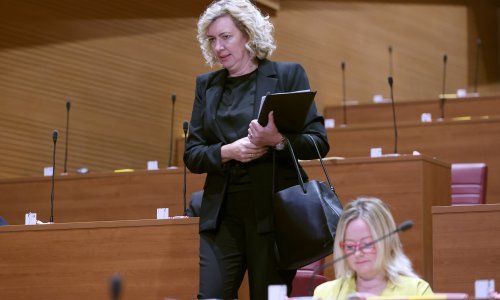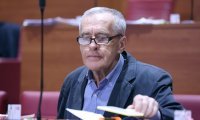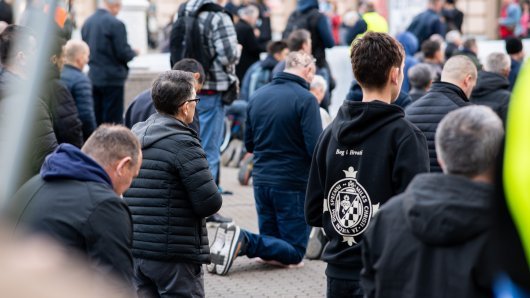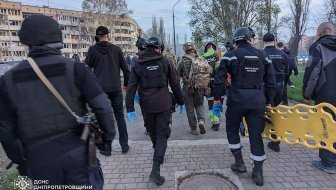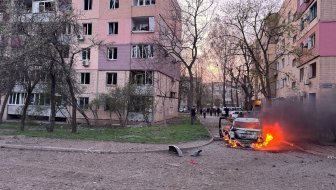Serbian President Boris Tadic told reporters at Jadovno on Sunday that he respected Croatia's sovereignty and independence and was doing his best to help make relations between Serbia and Croatia as good as possible.
"Even though there were difficult moments between us, the facts that we share are much more numerous than those that set us apart," Tadic said after attending a commemoration to the victims of the Ustasha World War II concentration camp Jadovno near the central Croatian town of Gospic.
Asked about his relations with Croatian President Ivo Josipovic, Tadic dismissed reports that they had deteriorated, adding that he talked to Josipovic on the telephone every ten to 15 days, both privately and for work purposes.
Asked about Saturday's commemoration of Croatia's Statehood Day, Tadic said the fact that he did not attend a dinner or a celebration yesterday was a matter of protocol and was not something that could disrupt relations between the two countries.
He added that he had extended his best wishes to Josipovic for Statehood Day.
Asked why he once said that genocide had been committed during the 1995 Croatian army and police operation "Storm", Tadic said that he did not make such a statement.
"I never said that genocide occurred during Operation Storm. That is a serious word. It implies special responsibility and the question of whether somewhere genocide occurred or not is a question for judges and historians, while presidents should stay away from such statements," Tadic said.
He went on to say that the day when Operation Storm was carried out was celebrated in Croatia, while in Serbia it was mourned. He added that Croatian Serbs were expelled on that day and that crimes were committed. Those crimes should be prosecuted by Croatia, Tadic said, adding that war crimes should be prosecuted individually both in Croatia and Serbia.
Asked about Serbia's EU membership prospects, Tadic said he could not deny that he was concerned about political processes in the EU and the possibility of enlargement fatigue and integration blockade in relation to Western Balkan countries, but that Croatia's forthcoming admission improved also Serbia's chances of EU accession.
Croatian citizens, too, should understand that it is in their interests that Serbia join the EU, Tadic said, adding that without a stable and prosperous Serbia it would be impossible to achieve stability in the Western Balkans.
He said that he would continue pursuing a pro-European policy as there was no alternative to it.
Speaking of victims of fascism, he said that remembering them was not enough and in that context underlined the importance of educating young generations.





